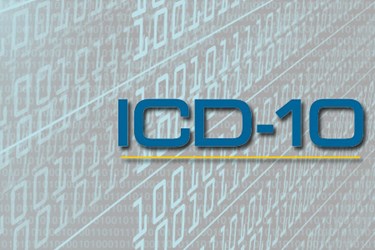CMS Announces Flexibility In ICD-10 Claims Auditing

By Christine Kern, contributing writer

The agency will reimburse for incorrectly-coded claims to ease transition.
As the October 1, 2015 deadline for the transition to the ICD-10 coding system quickly approaches, many healthcare providers are anxious about the switch. Now, the Centers for Medicare and Medicaid Services has announced it will reimburse for incorrectly-coded claims under the Part B physician fee schedule, providing that the incorrect code is from the right family. Under the new measures, CMS indicated it plans to establish a one-year grace period in which it will reimburse physicians under Medicare Part B, as long as the claims have a valid ICD-10 diagnosis code.
In addition, CMS might authorize advanced payments to doctors if Medicare Part B contractors cannot process claims due to administrative problems within a set timeframe, according to the CMS guidance.
The American Medical Association has been vocal about its desire to halt the ICD-10 transition and at one point President Steven Stack, MD told Healthcare Finance it would be best to wait until the implementation of ICD-11 and shelve ICD-10. “We believe the problems associated with ICD-10 are so substantial, our policy is we should not move forward with ICD-10.”
It now appears the AMA has had a change of heart, announcing a series of joint efforts with CMS to help physicians make the transition to IDC-10 on October 1. The two agencies will be hosting webinars, on-site training, educational articles, and national provider calls.
“As we work to modernize our nation’s health care infrastructure, the coming implementation of ICD-10 will set the stage for better identification of illness and earlier warning signs of epidemics, such as Ebola or flu pandemics.” Andy Slavitt, Acting Administrator of the Centers for Medicare and Medicaid Services said in a release. “With easy to use tools, a new ICD-10 Ombudsman, and added flexibility in our claims audit and quality reporting process, CMS is committed to working with the physician community to work through this transition.”
Expressing resignation that the ICD-10 transition is moving forward, Stack said, “ICD-10 implementation is set to begin on October 1, and it is imperative that physician practices take steps beforehand to be ready. We appreciate that CMS is adopting policies to ease the transition to ICD-10 in response to physicians’ concerns that inadvertent coding errors or system glitches during the transition to ICD-10 may result in audits, claims denials, and penalties under various Medicare reporting programs. The actions CMS is initiating today can help to mitigate potential problems. We will continue to work with the administration in the weeks and months ahead to make sure the transition is as smooth as possible.”
